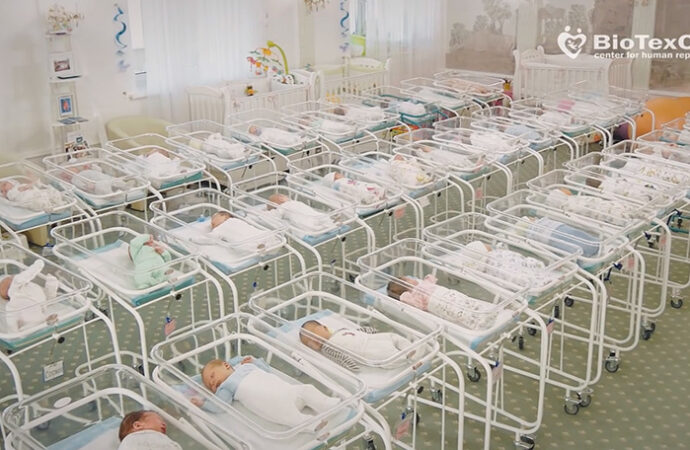Like rivets popping on the hull of the sinking Titanic, the stresses of the pandemic are revealing unexpected weaknesses in our societies. Suddenly we’ve realized that it wasn’t a great idea to source protective masks from China, that warehousing the elderly is dangerous, that we need check-out chicks more than we need managers, and so on.
But there is one disaster which is flying under the radar – the international surrogacy industry.
The hot spot of international surrogacy is Ukraine. Commercial surrogacy is legal there; the medical facilities are good; the cost is relatively low; and poor young women are plentiful. Asian countries like Indian, Nepal, Thailand and Cambodia no longer welcome couples from overseas.
Ukraine also recognizes the commissioning parents as the biological parents and places no limit on how much a surrogate may be paid.
An estimated 500 couples come to Ukraine every year to take delivery of their babies. But then the COVID-19 pandemic hit. In Ukraine, as everywhere else, the borders closed, with the infants on one side, the parents on the other. Surrogacy agencies were literally left holding the baby.
The results can be seen in this breath-taking video from BioTexCom, a surrogacy agency in Kiev – probably the biggest in the country. It certainly has the most aggressive marketing.
The video shows a large room in a hotel – not a hospital – in Kiev with 46 babies side-by-side in identical bassinets. They come from a wide range of countries – the United States, Chile, Italy, Spain, Britain, China, France, Germany, Bulgaria, Romania, Austria, Mexico and Portugal.
The sound of 46 wailing newborns is heart-rending. The room looks like a scene from a hatchery in Brave New World. “Babysitters” move from one baby to the next changing nappies, bathing them, feeding them, cuddling them.
There is a strict quarantine in Kiev, so the nurses have to live at the hotel.
The video was made to reassure BioTexCom’s distraught clients that their babies are safe and well. The staff show the babies to their parents online and update them in video calls about their eating, sleeping and health. “So don’t worry, your baby’s health is in good hands,” says Marina, the masked narrator.
These are just the babies of one agency. How are other agencies handling the problem? There could be hundreds more babies gestated for foreign couples in the hands of increasingly exasperated surrogate mothers.
It’s a nightmare. What about babies born with medical problems? What about clients who lose interest? Who pays for the extra accommodation? Who pays for extra time with the surrogate mothers? The paperwork to extract babies from the Ukraine is Kafka-esque at the best of times. And now? How long will it be before commissioning parents can fetch their children?
Above all, what about the babies? The scenes from the video are reminiscent of those harrowing pictures from Romanian orphanages after the fall of Communism. They are not being breastfed, not being cuddled, not being loved… The smiling, patient women in the video can only do so much for 46 squalling, mewling, puking babies. How will the lack of unconditional love in the crucial weeks after birth affect these mites?
Did you say that COVID-19 was just a black swan event, a terrible, unforeseeable accident?
Nope. Ukraine is a country where terrible, unforeseen things happen regularly. It is currently on the verge of fighting a dirty war with a powerful and unpredictable neighbor. Anything could happen at any time. The borders could close, the internet could disintegrate, electricity and gas could be cut off… COVID-19 was a relatively minor disruption. But it exposed the flaws in a system which was playing dice with the lives and the happiness of these children.
Commercial surrogacy is always ethically fraught and psychologically dangerous. The COVID-19 pandemic has merely highlighted its potential for industrial-scale child abuse.
—
This article has been republished from MercatorNet under a Creative Commons license.
[Image Credit: YouTube-BioTexCom clinic, “Surrogacy: babies are waiting for their parents“]
Image Credit: [Image Credit: YouTube-BioTexCom clinic, “Surrogacy: babies are waiting for their parents”]
















Leave a Comment
Your email address will not be published. Required fields are marked with *